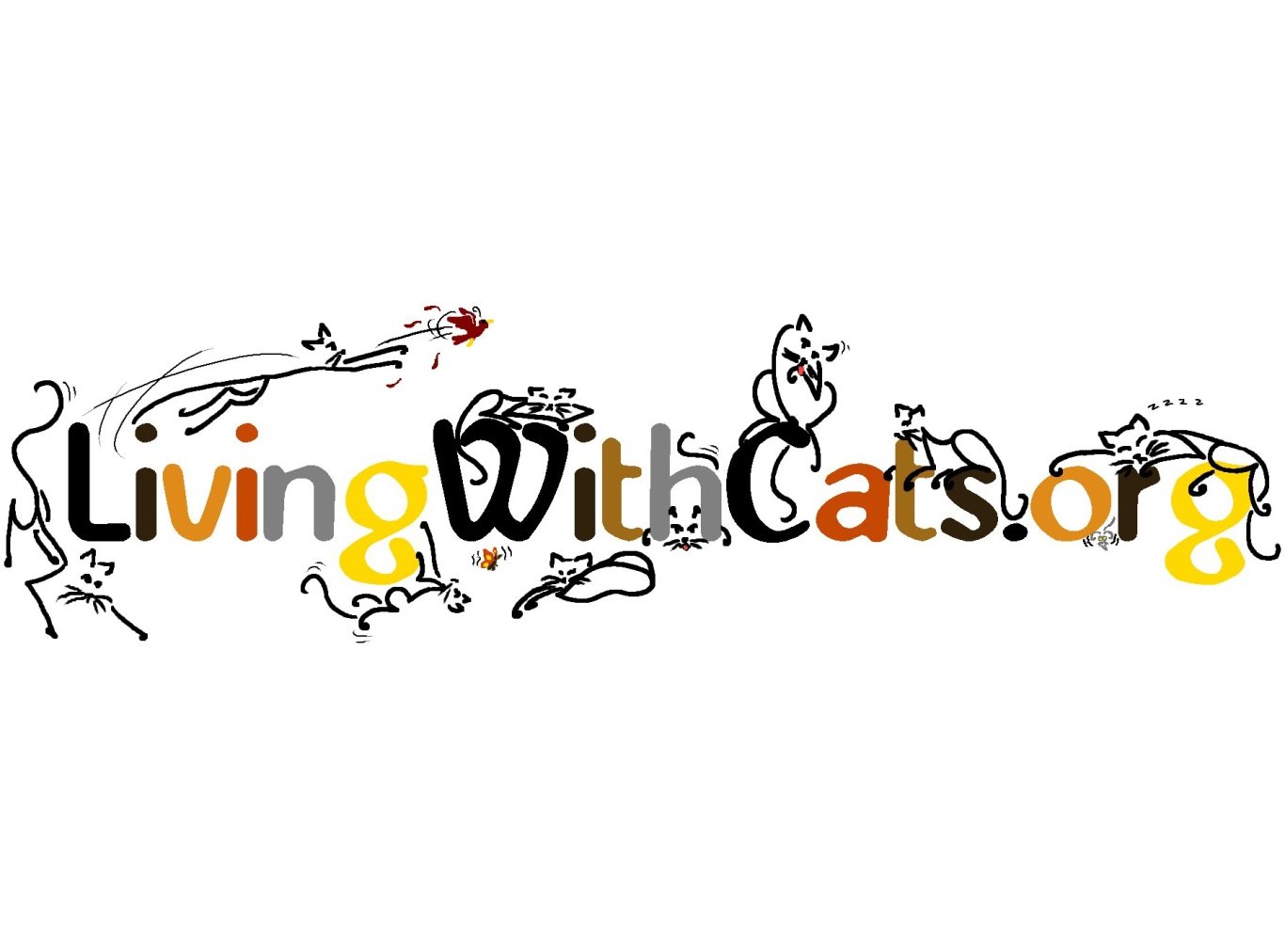We have had considerable experience in dealing with older cats. Most of our cats are sixteen years old or up to twenty-three years old. Like people, older cats generally need more care. Their bodies are wearing down, their health begins to fail and, yes, some develop dementia.
In some cats aging changes can begin as early as eight years old. By twelve years old most cats will begin to experience some aging changes.
Well-cared-for cats can live into their late teens or beyond, into their twenties. We have had cats live up to twenty six years old. We suspect that those cats who have had a hard life in their earlier years do not seem to live as long. We don’t think of any of our cats as old until they reach fifteen or sixteen years of age.
As a cat ages, they start to be less active and become increasingly “clingy”, willing to lie purring in your lap for increasingly longer periods of time. They need more cuddling. They want to be near you, and touching you.
They need more physical warmth, especially in the winter months. We have found that from eighteen years old on up, a soft material cat (or dog) coat is very acceptable to the senior cat in the cold of winter. If we find a senior huddled up against a heat source (a radiator, heating duct, etc.) or digging at and crawling under a blanket or bedspread, and upon finding her ears cold to the touch, it is time to introduce her to a warm coat. (We use coats that have Velcro fasteners down the belly, as they’re easier to put on.) Most accept this readily–once they figure out that, yes, they actually can walk normally while wearing one. Some will flop over like their legs are made of jelly, and some can suddenly only go backwards; while others suddenly look more sway-backed than any decrepit cartoon horse; some forget how to bend their legs, and use the most entertaining stiff-legged gait.
If you opt for a coat on your cat, have at least two of them–one to wear and one to wash. Be sure to keep her coat clean.
The coat should be removed daily so she can be combed to smooth and straighten her hair. Coats can cause hair matting.
It is interesting to note that even though the cat likes to wear the coat, they will still sometimes walk funny with it on. Just be sure that it is loose enough not to bind in any way. The fitting should be snug, not loose enough to have the cat walk out of the coat.
Cats seem to love cardboard boxes. Put a cardboard box (at least approximately 12” tall, 8” x 10”) on its side. We usually add a newspaper lining that can be changed periodically, thus keeping the box clean and extending the usable life of the box. Newspaper and cardboard stop drafts, and add warmth, since they will radiate the cat’s own body heat back. That’s why homeless people oftentimes cover up with newspapers to keep warm when it is cold out.
Next you want to add a soft bed, covered with a warm material (piece of an old blanket, some furry-type material, wool, fleece, etc.). Your senior will love it, and have a nice, cozy, warm and draft-free bed.
Also, just like aging people, vision and hearing problems develop. Cataracts are not uncommon. These eventually will result in blindness. Since the vision loss is gradual, cats tend to adjust quite well. A blind cat can get around about as well as a sighted one. Their senses of hearing and touch take over. Their whiskers are excellent for touch-sensing. We had one totally blind cat who felt his way by a sliding motion of his feet. He never bumped into anything. He even climbed up to places you would think would be inaccessible to him. Our twenty-two year old just recently went blind. She must now learn how to find her food and her litter pan. We have limited the size of the area she has access to, and made sure that she can’t fall off anything. Her best friend, who is twenty years old, has been blind for a while. He is becoming her guide at times. She’s adjusting, though she does have some dementia. She is still going pretty strong despite her problems. We’ll work with her rather than put her down. She’s been a great companion for many years. She deserves our help as long as she wants to keep going.
With increasing age, it is not uncommon for your older cat’s sense of smell to decrease. The consequence of this is usually a decrease in her appetite, since a cat normally needs to sniff a meal before eating it. Warming your cat’s canned food (for ten to twelve seconds in a microwave) unleashes more of the food’s aroma, and makes it more inviting. If your cat refuses to eat or drink at all, go to your veterinarian as soon as possible–it is very important a cat doesn’t go too long without taking in food or water. There are also medications and supplements that can encourage her appetite. Sometimes you simply have to force-feed a bit of the food to stimulate her appetite.
We often supplement our cats’ diet if they appear on the thin side with a vitamin supplement paste from our veterinarian. Some infant baby food (meat only–no onions or flavoring) is a nice treat. Cottage cheese, cream cheese, a piece of regular cheese, some chicken, etc. make good treats and stimulate a waning appetite.
Our senior cats generally are fed three or four times a day, instead of the usual twice a day, if they are thin and need some weight. They fare very well with this. They seem to need more meals of wet food. Our cats always have access to a variety of dry foods, but as a cat ages and loses teeth, the dry food becomes harder for them to eat. We always make sure our seniors who lack teeth have soft food. Shredded or sliced we food can be difficult for them as well, so we simply use a blender to chop them up to a pate form. That way we can be sure they are able to eat enough.
Older cats are at an increased risk for illness as their immune system weakens. A veterinarian visit about every six months is a good way to keep your senior healthy. Your veterinarian can advise you on your cat’s changing nutritional needs. Most senior cats lose some or even all of their teeth. Be sure that a good soft food diet is available for them. Our seniors seem to need to eat more often; older cats prefer smaller meals and will eat several times a day, due to their changing metabolism. Our senior cats who are eighteen years old and up get a third soft food meal each day. The amount doesn’t necessarily increase, it is simply divided out into three meals instead of two. A few actually do need more food. If this is a problem, the extra food plus a vitamin supplement can help. Work with your veterinarian. A cat who is always acting like she is starving may have a serious physical problem like an over-active thyroid. There is a medication for this, though it must be given to the cat for the rest of her life. This thyroid problem is another normal aging problem for some cats. We’ve had to deal with it several times. The cat can still enjoy a few more years of life. The excessive hunger could also be indicative of some other, serious physical problem. Always consult with your veterinarian. The appropriate tests can be run. Proper steps then can be taken to correct the problem.
Diabetes is a common aging problem with middle-aged to senior cats. This one is a little bit more difficult to deal with. As with people, you have to test their blood sugar level and then give them a daily shot of insulin. Again, they can live several years with diabetes if you manage it well. Sometimes, just a diet adjustment will work. Cats with diabetes drink a lot of water, urinate large amounts, are always hungry, and their fur doesn’t look healthy. Diabetes is slightly more common in male cats than in females. A high protein/low carbohydrate diet can sometimes be all you have to do. Your veterinarian can guide you. Only your veterinarian can diagnose diabetes, through blood testing.
Another common problem seen in older cats is the development of growths (cysts and tumors). Many are harmless, but some can be cancerous. We’ve lost several cats to cancerous tumors. When you find one on your cat, have your veterinarian check it out immediately. A test can be done to determine if it is cancerous. If caught early, some cancerous growths can be removed completely.
NOTE: A cat over eighteen years old may not survive the anesthesia. Surgery is often not a good option then.
Older cats tend to suffer from increasing constipation as they age. Watch for this. Your veterinarian can help with this painful problem. Don’t ignore it.
Kidney and urinary tract disease is another fairly frequent problem in older cats. Kidney disease (chronic renal failure)–where the cat can’t seem to get enough water–is the #1 cause of death in elderly cats. This is constant water consumption and urination way above normal amounts. There is also weight loss, vomiting and a poor appetite. If your cat displays these symptoms, consult your veterinarian promptly.
Heart disease is another problem senior cats experience.
As you can see, elderly cats need more care. Your veterinarian should become an important part of this care, so that your feline friend can enjoy a longer and better quality of live. Our senior cats have been with us for many years and have brought us many hours of love and enjoyment. Now that they are old and their health (both mental and physical) are beginning to fail them, we are happy to be there for them to make their last days as comfortable as possible.
Watch your cat’s coat. Is it dull and matted? Older cats do not groom as much. If the cat doesn’t feel well, she won’t groom at all. The skin of a senior cat is more sensitive to pulling and sharp combs or brush bristles. Groom gently. They do require more grooming. The older a cat gets, the less grooming she does for herself. You have to take over and help her.
Senior cats develop stiffness and oftentimes arthritis. Getting up and down from places becomes more difficult and painful. Your veterinarian can help here, and medication is available to help with the pain of arthritis. Your cat’s surroundings greatly influence her quality of life. You can offer ramps, steps, footstools, etc. to give your cat easy access to a favorite place. Elevate foot and water bowls to accommodate the stiff neck and shoulders that no longer easily bend. If your home has two or more stories, keep a litter box on each floor. Stairs sometimes are too difficult to climb. Place a warm lamp above a soft bed (an old pillow works great!) to give your oldster a soft, heated resting area. Older cats crave more heat, they become chilled more easily. If you must be away from home, ask a trusted friend to care for your pet(s) in your absence. Make sure a house key is available and that they know the location of your pet(s) emergency kit and your pet(s)’s favorite hiding places. Be sure your friend and your pet(s) are acquainted. (If your pet doesn’t know them, it could be next to impossible for your friend to catch them.)
 All elderly cats are at an elevated risk for age-related mental deterioration (Feline Cognitive Disease). In other words, they get a dementia similar to Alzheimer’s Disease in humans. As many as 80% of cats over the age of 16-years-old show signs of this (called Feline Cognitive Disorder). It is often unreported, since it is difficult to diagnose. It is progressive, and ultimately terminal. A drug, Anipryl, can reverse or at least slow the progression of some signs temporarily. But it will not stop the disease in the end.
All elderly cats are at an elevated risk for age-related mental deterioration (Feline Cognitive Disease). In other words, they get a dementia similar to Alzheimer’s Disease in humans. As many as 80% of cats over the age of 16-years-old show signs of this (called Feline Cognitive Disorder). It is often unreported, since it is difficult to diagnose. It is progressive, and ultimately terminal. A drug, Anipryl, can reverse or at least slow the progression of some signs temporarily. But it will not stop the disease in the end.
SOME SIGNS OF CAT DEMENTIA
- Wandering about, crying loudly and lost in territory the cat should be familiar with.
- Diminished playfulness.
- Excessive sleeping.
- Shifting patterns of sleep and wakefulness.
- Long periods of staring into space or at walls.
- Indifference to food and water. You have to “start them” in order to get them to eat, by touching some food to the mouth to remind them they need to eat.
- Sudden, prolonged and seemingly unprompted loud crying. Going to your cat and holding her helps with this, it aids her to get oriented again. This one happens particularly at night. The howling and crying is most likely a base fear, perhaps of death. They don’t feel quite right, and they can’t do anything about it. It is curious to know that this happens with old dogs, too! It is always at night, usually between midnight and dawn.
- Elimination outside of the litter box.
- If other cats are in the household, the senile cat tends to withdraw from them. For instance, a cat that may have always slept with another cat may stop doing that.
- Acting spacey and not seeming to recognize their owner.
In short, as your cat ages, you need to be more vigilant in monitoring her health. Recognize any subtle physical and behavioral changes. This will help to avoid some health problems.
Did you know, a 20-year-old cat is roughly the psychological equivalent age of a ninety-six-year-old human.
Cat’s age Human’s age
- 11 years 60 years
- 12 64
- 13 68
- 14 72
- 15 76
- 16 80
- 17 84
- 18 88
- 19 90
- 20 96
- 21 100
Keep track of your elderly cat’s weight–down to the ounce. Do this each week. Any weight loss should be noted and your veterinarian should be consulted.
A change in eating patterns or water consumption may signal health issues, such as diabetes mellitus or kidney failure. Kidneys are often the first organ to deteriorate in an older cat. If there is a large increase in water consumption, go to your veterinarian.
Keep your older cat’s litter box(es) clean. Old cats urinate more. Also, make the box easily accessible–perhaps a low step to make access easier would be wise. Stiff muscles and arthritis can make it too difficult to get into the litter box. Make it easier for your senior cat. They overall just can’t jump or climb as well as when they were younger, so you should pick them up or contrive ramps or shallow steps to help them get up and down from favored higher places, such as couches and beds, without hurting themselves.
You should talk a bit louder–an older cat’s hearing deteriorates just like an older human’s. Their vision also starts to go; cataracts will blind an older cat, so you should refrain from changing things around, and keep things calm.
The bottom line is that the older your cat gets, the more attention and care you should give her. Her life is coming to a close, and with your help and love, her last few years will be pleasant for her. Elderly cats are very special. Most likely your senior cat has been a companion to you for many years. Don’t ignore her. Give her more love and attention. With your veterinarian’s assistance, make the latter part of her life comfortable. Pamper her! The aging changes she is experiencing is not dissimilar to what you may experience some day.
EUTHANASIA
There comes a time when you need to decide whether your feline friend is suffering far more than being able to have any quality life. Work with your veterinarian and perhaps euthanasia would be the best option. You don’t want your friend to suffer in pain and discomfort, perhaps slowly losing more and more of their ability to move about until they are completely paralyzed. With the aid of some anesthetic and then the final shot, your feline friend can leave this world quietly and in peace, instead of struggling with fear and pain–they simply go to sleep, and never wake up again. This is a very personal decision, and your veterinarian cannot tell you what to do–they can only answer any questions you have about any possible treatments, versus what is entailed in putting your feline friend into her final sleep. If you veterinarian is optimistic about treatment possibilities, and you can afford them, by all means go ahead and try them.
1-28-2017bct


